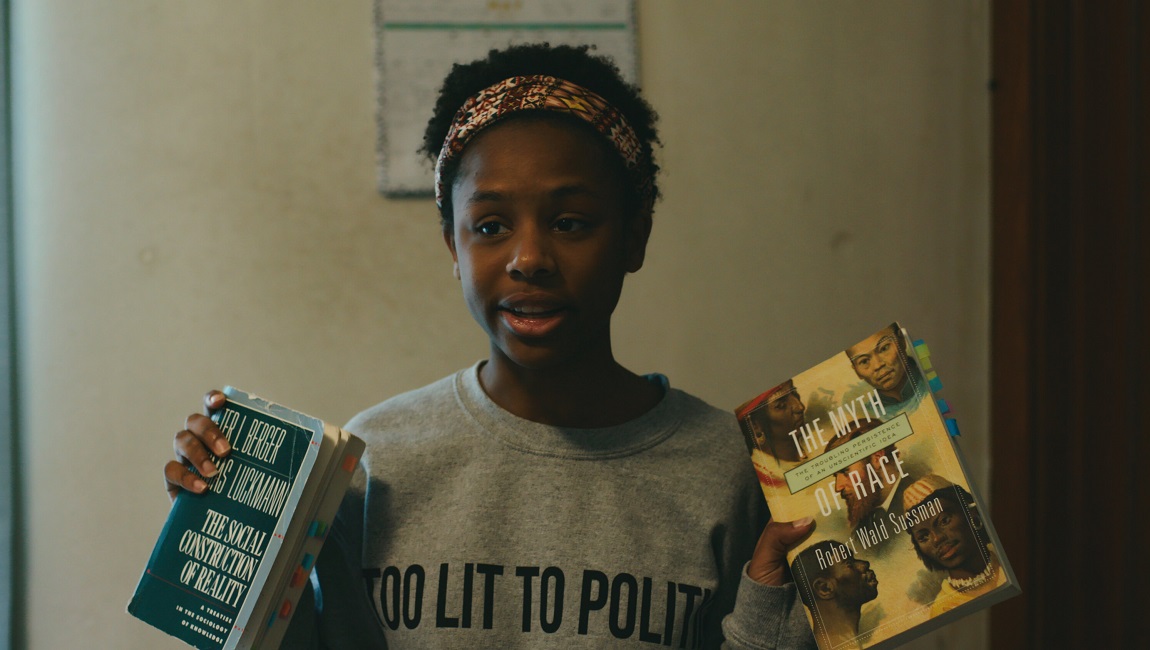Accepted doesn’t always handle its myriad threads with equal deftness, but the film is movingly carried through on the strength of its individual stories and their larger sociopolitical implications.
What better filmic form for taking on a “too good to be true” story than that of the documentary? When director Dan Chen and his producers decided to take a trip to Breaux Bridge, Louisiana and check-out T.M. Landry College Preparatory, their hope was to illuminate the story behind a miracle of an institution. The unaccredited, co-ed private school had been dominating media headlines thanks to an 100% acceptance rate for its students to 4-year colleges, an already-impressive feat, but moreover the fact that its student body was low-income and predominantly Black and brown truly captivated national attention. Senior students’ college acceptance videos went viral, a collective and viscerally cathartic joy bursting from crowds of faces proving an uplifting tonic to all but the most envious, deeply racist, and cold-hearted. In telling this story, Chen anticipated a triumphant narrative about a school that had managed to transform the lives of institutionally disadvantaged youths and challenge the stereotypes which so frequently mar their futures. But instead, Accepted serves as a reminder that not all that glitters is gold: The documentary examines the thornier topics that underlie a pursuit of academic success for those often barred from it, while taking broader aim at societal injustices.
At first, Accepted plays about as rosy and inspiring as one might expect. Chen focuses on a principal cast of four students, outlining their personal struggles and dreams. We also meet Michael Landry, co-founder of T.M. Landry, whose ebullient intensity is reminiscent of a T.D. Jakes or LaVar Ball. We see montages of locked-in students learning trigonometry and Latin declensions. More montages fast-track the bonding between the four core students, all of this shot handheld, with an effervescent charge; all exceptionally well-paced and emotionally affecting. But simmering underneath is a mounting sense of dread. Lines like, “We’re only at our houses to sleep” or “It’s like boot camp” linger in our minds. Soon, the rousing soundtrack, which at the beginning scores things like kids setting off fireworks, is used to underline shots of students slumping at their desks, looking fatigued and lifeless. Likewise, the camera doesn’t shy away from showing how Mr. Landry’s motivational speeches can devolve into terrorizing rants.
Chen’s approach is free of maladroit moralizing; he allows the space for his subjects to speak on their own behalf. And it’s often during such candid moments, when students begin revealing their personal circumstances, that the more disturbing implications set in. Accepted is structured in such a way as to incrementally “sober you up” until you realize you’re effectively watching children trudge through 12-hour school days, six days a week, in a hollow warehouse that — for a genre film, say — could have been the set of a Black Site. Chen’s choice to focus on a few older students pays dividends, since when we come back to these young men and women later, we glean a glimpse of their mental deterioration from this pressure-cooker scenario. Their weariness, almost tragically, is still laced with gratitude for the opportunity that they were given.
Chen structures his film in such a way as to gradually “give in” to the darkness – with a climax, a bombshell exposé from The New York Times, that comes right at the halfway point. From that darkness, though, emerges a harrowing clarity: What we first believed to be “the light” of Landry’s educational method was not as it appeared. Accepted, in fact, resists easy answers to complicated problems. The students here are by turns seen as heroic and as victims of Landry College Prep’s academic ringer. But Michael Landry himself (and by extension his wife, Tracey, who gets less attention) is by no means some mustache-twirling villain in all this; a large-than-life man, he’s a boisterous blend of drill sergeant, preacher, and cult leader, and in his past lies a personal tragedy which motivated him and is viewed here as a kind of “original sin.” Chen manages to withhold overt judgment of Landry but, at the same time, is unsparing, giving the viewer a close look at his subject’s behavior. When Landry bellows disturbing demographic statistics to his shell-shocked students, is this a cold dose of reality or traumatizing and counterintuitive? More broadly, what’s the line between “tough love” and bullying cruelty?
Accepted’s most upsetting and eerie scene takes place at night — the camera hovers above the school building as excerpted commentary from students’ parents fills the void. Even in light of the NYT exposé, and its horrific allegations, the parents steadfastly support Landry and his mission; their deep-seated faith in the school’s promises of empowerment are only matched by their deep-seated mistrust of a white legacy institution’s rebuke. Here, the greater-scope villain begins to take shape. What type of society needs to exist such that racially and economically marginalized kids are told they must be superhumanly exceptional in order to survive? Why is it that they are only valued when they get into Ivy League schools “against all odds,” and not when their underfunded schools arrest their intellectual development? Chen movingly suggests that the true roots of this issue go deeper, extend further, and implicate greater numbers. Unfortunately, this latter section isn’t as deftly handled as what comes prior — the questions pursued are broad and less character-centric, and discussions around them can become more didactic. Thankfully, the continued journeys of the four featured seniors, and their lives after T.M. Landry, carry this film. Accepted resonates most through the stories of its individuals, while also probing some of the most pressing sociopolitical challenges of our times.
Published as part of Before We Vanish — July 2022.







